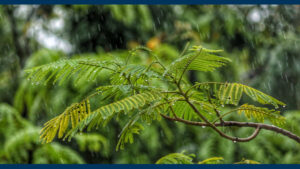Rabbi David Feder | Temple Beth Israel-Shaare Zedek, Ohio, USA
 Shmini Atzeret, the Eighth Day of Assembly, is nearly forgotten as a festival. Even in ancient times, it seemed as if people just wanted to make it an additional day of Sukkot and the rabbis had to create means by which to separate it from Sukkot. They declared that on Shmini Atzeret you cannot eat in your Sukkah, but if you do, you have to make kiddush inside your house, or at least you have to do something to make your Sukkah less than whole or perfect. In contemporary times Shmini Atzeret is almost completely swallowed up by Simchat Torah with which it is paired.
Shmini Atzeret, the Eighth Day of Assembly, is nearly forgotten as a festival. Even in ancient times, it seemed as if people just wanted to make it an additional day of Sukkot and the rabbis had to create means by which to separate it from Sukkot. They declared that on Shmini Atzeret you cannot eat in your Sukkah, but if you do, you have to make kiddush inside your house, or at least you have to do something to make your Sukkah less than whole or perfect. In contemporary times Shmini Atzeret is almost completely swallowed up by Simchat Torah with which it is paired.
But I believe that today, Shmini Atzeret has renewed meaning. It feels as if we are living at least in the spirit of Sukkot all of the time. During Sukkot, we live, as much as possible, inside our sukkot, subject to the whims of nature, protected by a flimsy frame and a covering of schach. Over the last several months our lives and lifestyles have felt temporary, suspended between the world before COVID-19 and whatever will come later, once the virus is somewhat under control. We feel subjected to the random forces of nature with only a limited degree of shelter from all of life’s storms, physically, economically, and spiritually.
Shmini Atzeret marks the hope for future blessings. On it, we recite our prayer for rain, Tefilat Geshem, in the hopes that the rains of fall and winter will produce an abundant harvest in spring and summer. In ancient times, the amount and timing of the rains, was an issue of life and death. While we still need the physical rain for our crops to help sustain the planet, we also need desperately a metaphorical rain. At this time, we hold onto the hope for a rain that will be cleansing and purifying. Beyond incapacitating the virus, we also want to be cleansed of the emotional devastation wrought by COVID-19, the ongoing feelings of being stressed, exhausted, and overwhelmed, as well as the feelings of grief, loss, and hopelessness.
Rain is also a symbol of Torah and knowledge. In parashat Ha’zinu (Deuteronomy 32:2), Moses declares “May my discourse come down as the rain, my speech distill as the dew, like showers on young growth, like droplets on the grass.” Just as rain nourishes and makes growth possible, so too do our traditional texts nourish and sustain us. While our lives might feel that we are on hold, somehow suspended in time, learning is something that has always grounded us. The study of Torah, through the lens of our contemporary times, gives us insight and understanding. We are not the first generation to go through a crisis, nor will we be the last, but we can learn from the struggles of those who came before us and provide instruction for those who will follow.
In many of the classical teachings about Shmini Atzeret, God bids the Israelites to remain with the divine presence, just a little longer, lingering in the Temple and Jerusalem for just one more day, much as we might linger in the parking lot following an event or in the social hall at the oneg Shabbat, trying to hold on to those feelings of warmth and closeness. The root atzar – ayin-tzadki-resh, has the meaning of both assembling and staying. In one source, Pesikta d’Rav Kahana 28:8, “Rabbi Yudan said in the name of Rabbi Isaac: As long as Jews draw together (mei’atzrin) for the celebration of festivals in synagogues and houses of learning, the Holy One shows by the Divine Presence that God is drawn (otzar) to them. And what is the proof? The words spoken by Manoach [father of Samson] to the angel, “Please stay (atzar) here so that we may prepare a kid for you (Judges 13:15).” If a person can entreat a divine messenger to stay for a while with the use of the word atzar, how much the more so can the same word be used for God asking us to stay a little while longer?
In my synagogue, like so many others, we can no longer gather together within the sanctuary or linger in the parking lot or social hall. Services and programs are virtual, with each of us in front of his or her screen participating in worship or learning. But we still draw together, we still find each other across cyberspace, and we still linger in the virtual rooms of Zoom following each more formal get together. And we can feel the Divine Presence in our midst, even when we are physically distant.
And so, for this Shmini Atzeret, this Eight Day of Assembly, we pray for rain, both physical and metaphorical, that will be, “For a blessing, not a curse. For life, not for death. For abundance, not for famine.”
The views and opinions expressed in this article are those of the author(s) and do not necessarily reflect the official policy or position of the World Union for Progressive Judaism (WUPJ).
